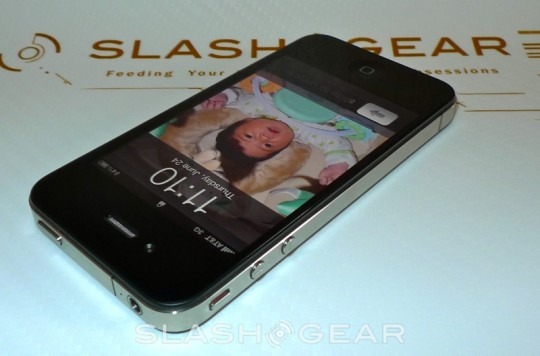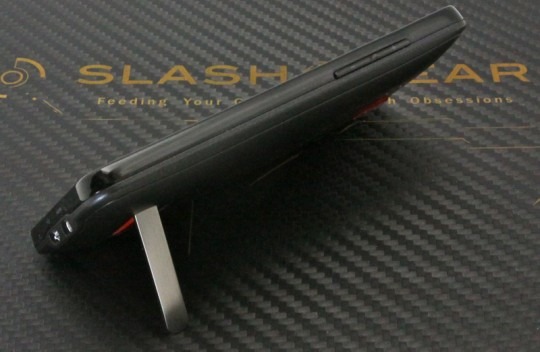Making The Case For EVO Vs. iPhone
It's been a pretty wild year for smartphone aficionados. We've seen more devices come to market this year than ever before. Two in particular have gained a lot of notoriety over the last few weeks, the EVO 4G and the iPhone 4. Both phones are super powerful and, just a few years ago, either of these phones coming to market was as likely as me beaming to the Starship Enterprise. You've read the reviews, previews and hands-on commentary but still can't decide? Here's some advice how to make the call.1. Network – The EVO is a CDMA device running on Sprint's 4G network. If you're in a 4G area, you'll see some wicked cool speeds that will leave you gaping in amazement. Most likely though, you're not living in a 4G area so you'll see very good 3G speeds until Sprint gets to you. Your phone is also US-only, world travelers need not apply. The iPhone runs on AT&T. That means you'll get 3G speeds and can use the Internet while talking at the same time. Of course, you'll also be dealing with AT&T's spotty coverage and sometimes over-capacity network. I've had pretty good luck with both for the most part but when I do have network connection issues, it's usually with AT&T more than any other carrier. AT&T is also based on GSM standards so your phone will roam overseas most places, but you'll pay a pretty hefty fee for it.

2. Open/Closed – It's not an issue most users care about but if you're reading this column, it might well be an issue for you. The nature of the Android OS is that it's inherently more open than Apple's iOS platform. That means if you want to install apps that aren't in the app store you can go right ahead on the EVO. For iPhone users, unless you're willing to jailbreak your device, you're pretty much going to use whatever Apple has approved for you. As there are over 250,000 iPhone apps, you won't be hurting too much. It really comes down to choice and personal risk. Want to use a cool keyboard replacement like Swype? Easy on Android, not possible without a lot of hacking on iPhone. On the other hand, you're far more likely to find a malicious app on Android (or one that's just poorly written that does bad things in error if not design) than you will on the iPhone. Apple also has a very impressive lead on apps. While sheer numbers aren't the issue, it does mean that you're likely to find the cool app you're looking on in the Apple store well before the Android marketplace.3. Battery life – It's a big issue because the best smartphone on the market is nothing more than a brick in your pocket once the battery dies. The EVO's been hit with a bad reputation for battery life. I've been carrying one for a while and I don't find the EVO battery life to be worse than any other device in this class. Of course, if you're on a 4G network, using your EVO as a mobile hotspot to connect four or five devices while you make long phone calls, don't expect the battery to do miracles. iPhone 4 looks to be a winner in battery life mostly due to some efficiency with the A4 chip powering it and the fact that Apple put in a bigger battery. It's too early to call battery life just yet but it looks like the iPhone 4 might have better stamina.4. Widgets – I like widgets, small applications that reference glanceable information without the need to launch an app. It's a core part of the Android experience and HTC has refined it with their Sense UI. I love quickly seeing my Twitter feed, news headlines, weather, stock reports and other snippets of information customized to my liking. There's nothing like it for iOS yet.5. Multi-tasking – Android does it for real but it comes at the expense of performance and battery life. Apple takes a somewhat different approach that might not technically qualify it as multi-tasking but unless you're an Uber-Geek it won't matter. Bottom line, both will let you play Pandora in the background while you're doing something else but at the moment, Apple does it more efficiently preserving performance as well as battery life. The flipside is apps have to be written to take advantage of the feature for Apple's platform where it's a given on Android.

6. Screen – Tough call. The EVO 4G has an amazing bright super large display. It's so large, the phone has a kick stand. One must respect any phone with a built in kickstand. iPhone 4 has a new "retina" display. Whether your eye can discern the pixels or not, Apple's display is the sharpest I've ever seen on a mobile screen. It's a tough call, maximum size or resolution? It's worth seeing both and then making the call as to what's right for you.
Bottom line? Both phones are state of the art and redefine the top end of the smartphone line. Both phones, though, carry a different design philosophy and where you stand on some of the issues I've outlined will lead you down one path or the other. The really fun part? Neither company was a major player in the mobile space. If we were chatting about the mobile market just three years ago, neither Apple nor Google would have been an integral part of the discussion. That velocity of mobile just means we'll no doubt be having this type of conversation over and over again in the weeks and months ahead, and that's just fine for me.
Still want more? Check out the SlashGear reviews of the Apple iPhone 4 and HTC EVO 4G. Want to share your opinion on the iPhone 4 and the EVO 4G? Head over to SlashGear Roots and leave your own review!
